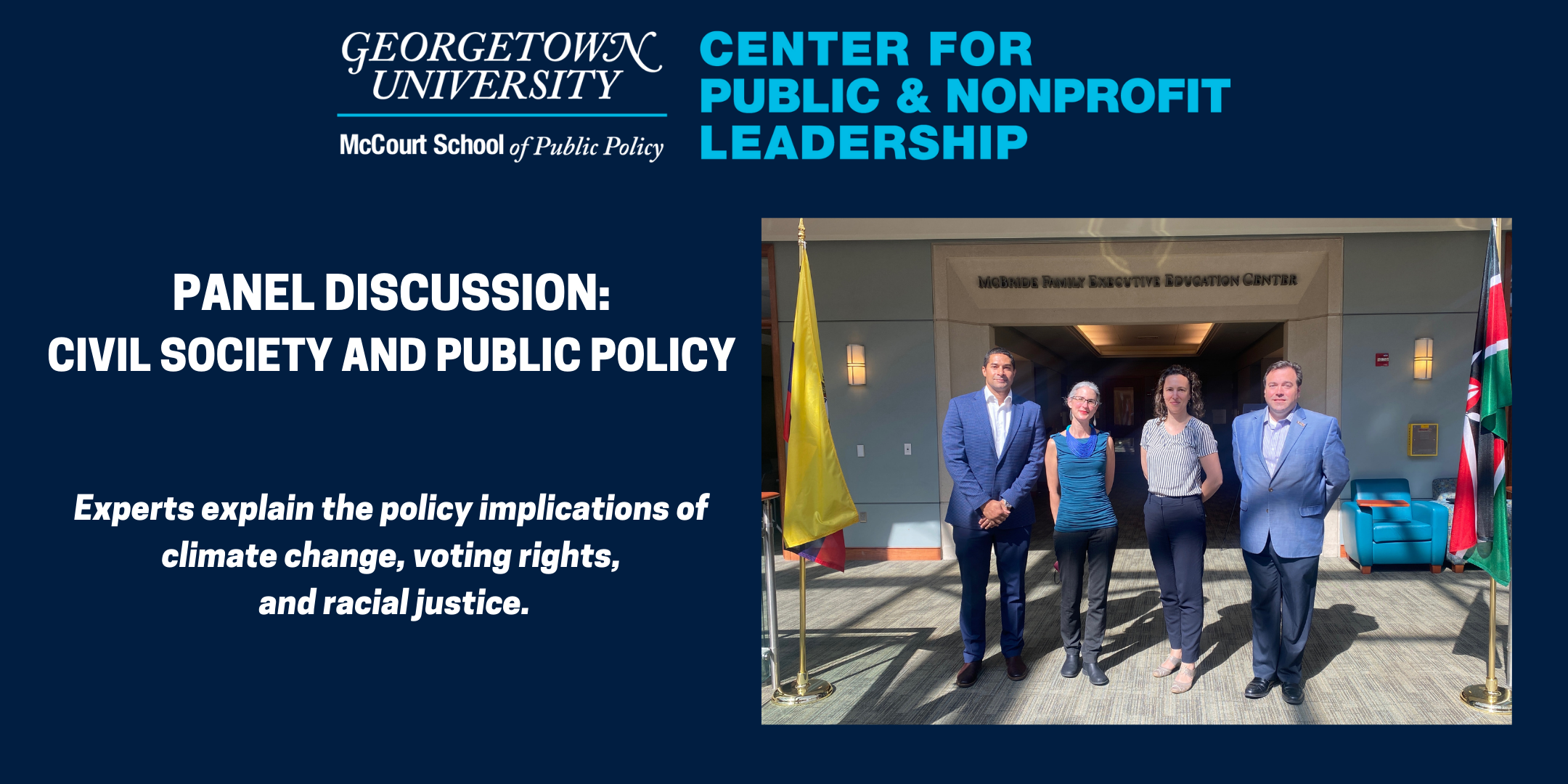Panel on Civil Society and Public Policy

Posted in News Story
On April 15, Dr. Luisa Boyarski, Assistant Director of the Center for Public and Nonprofit Leadership (CPNL), led a panel on Civil Society and Public Policy for business leaders in ESSEC & Mannheim’s Executive MBA in partnership with Georgetown’s McCourt School of Public Policy and McDonough Business School. The panel featured three experts who focused on current trends in US civil society–racial equity and justice, climate change, and voting rights.
First, we heard from Julian Haynes, a Visiting Practitioner at CPNL, where he is researching guaranteed income pilot programs. Prior to his time at the Center, Julian was the Partnerships and Strategy Director at the Eugene and Agnes E. Meyer Foundation, where he helped transition the organization to center an equity-based model. Julian candidly detailed the limitations of philanthropic contributions. Private funding for direct services alone cannot bring about systemic change. He expressed the importance of building people’s power to support movement building and overall systems change.
Next, Lotte Schlegel, Executive Director of the Institute for Market Transformation, shared her expertise at the intersection of the climate crisis and civil society, offering tangible steps for organizations to take. She engaged the audience, encouraging them to visualize their communities and imagine the impact climate change will have on everyday life. She offered three key questions for organizations to consider: What the main risks of climate change are for your business? How are you seeking input from those affected by climate change? And, how does your business increase or disrupt climate harm?
Finally, we heard from Adam Ambrogi, the Senior Director for Voting and Elections at the National League of Women Voters and Visiting Practitioner at the Center. Drawing from his experience on Capitol Hill, Adam articulated the necessity of outside pressure to do equity work. To do this, he advocated for civic alliances between policy makers and civil organizations. These alliances ultimately work to promote structural cultural and social change.
Following opening remarks, the business executives peppered the panelists with questions, ranging from what defines democracy to what limitations name-and-shame tactics have on an international scale. One of the key takeaways was to interrogate what needs are present in one’s community, acknowledging differences in how the relationship between civil society and government varies in each country and area. Simply put, it’s crucial to inform business practices from a diverse array of perspectives.
This panel, as Dr. Luisia Boyarski explained, explored how to change systems to center equity, focusing on the intersection of civil society and public policy. This work is not done in isolation from communities or other sectors. Instead, the work happens collaboratively to create structural change for a more equitable future.
For more information, we recommend a series of articles provided by the panelists:
